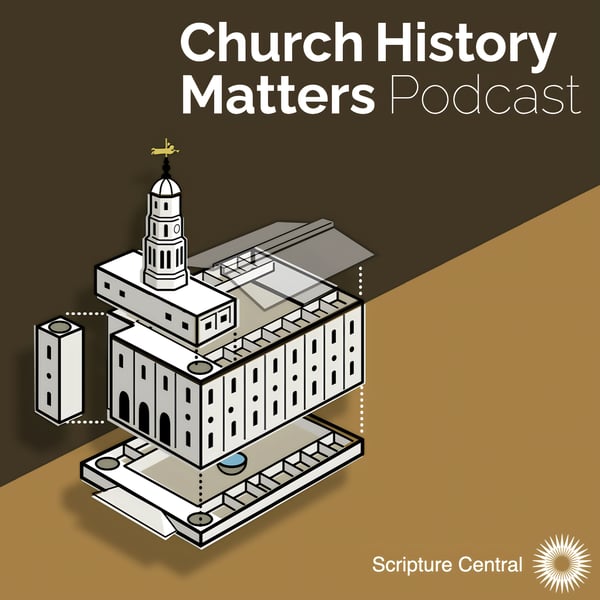038 How Can We Think Like Historians?
Church History Matters
Scripture Central
4.9 • 1.3K Ratings
🗓️ 21 November 2023
⏱️ 58 minutes
🧾️ Download transcript
Summary
Transcript
Click on a timestamp to play from that location
| 0:00.0 | How can we know what actually happened in the past? Whose stories are true. |
| 0:11.3 | Peecing together accurate history can be tricky business. |
| 0:15.0 | People in the past, like people today, were diverse. |
| 0:19.0 | Some were honest, some were not. |
| 0:21.0 | Some were straight shooting truthtellers who gave honest the subjective accounts of what happened. |
| 0:26.3 | Others emphasized or omitted specific details in ways that would serve their particular agenda, |
| 0:33.0 | and others just lied. |
| 0:35.0 | So how should we think about and evaluate |
| 0:38.0 | the reliability of historical claims and assertions |
| 0:41.0 | to discern what is historically accurate from what is mistaken or misleading. |
| 0:46.7 | In today's episode of Church History Matters, we dig into the basic toolbox that trained historians |
| 0:52.1 | use in their efforts to be source critical. |
| 0:55.0 | And being source critical essentially means caring about where our information is coming from |
| 1:00.0 | and being honest about what that information can and cannot tell us. |
| 1:04.9 | It means we recognize that not all historical claims are created equal, and so we aim to use |
| 1:09.9 | only the best data to inform our understanding of the past. |
| 1:14.0 | Well, we cannot always protect ourselves from deception. |
| 1:17.2 | Developing the skill of being source critical |
| 1:19.9 | will greatly reduce the odds that we will be misled. |
| 1:23.6 | So in short, today is our crash course |
| 1:26.2 | and learning how to think like a trained historian. |
| 1:29.5 | I'm Scott Woodward and my co-host is Casey Griffiths. And today we dive into our fourth |
... |
Please login to see the full transcript.
Disclaimer: The podcast and artwork embedded on this page are from Scripture Central, and are the property of its owner and not affiliated with or endorsed by Tapesearch.
Generated transcripts are the property of Scripture Central and are distributed freely under the Fair Use doctrine. Transcripts generated by Tapesearch are not guaranteed to be accurate.
Copyright © Tapesearch 2025.

